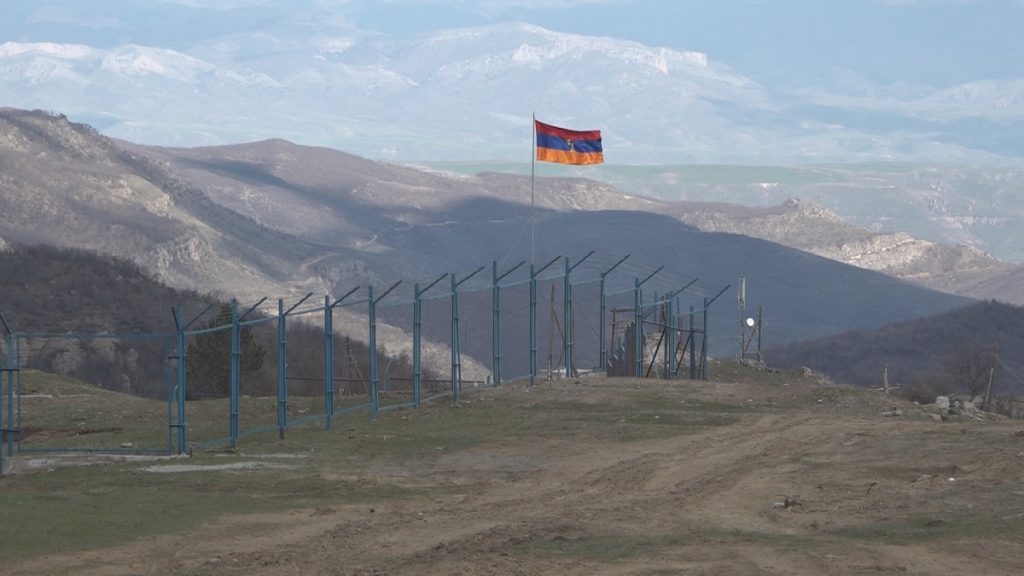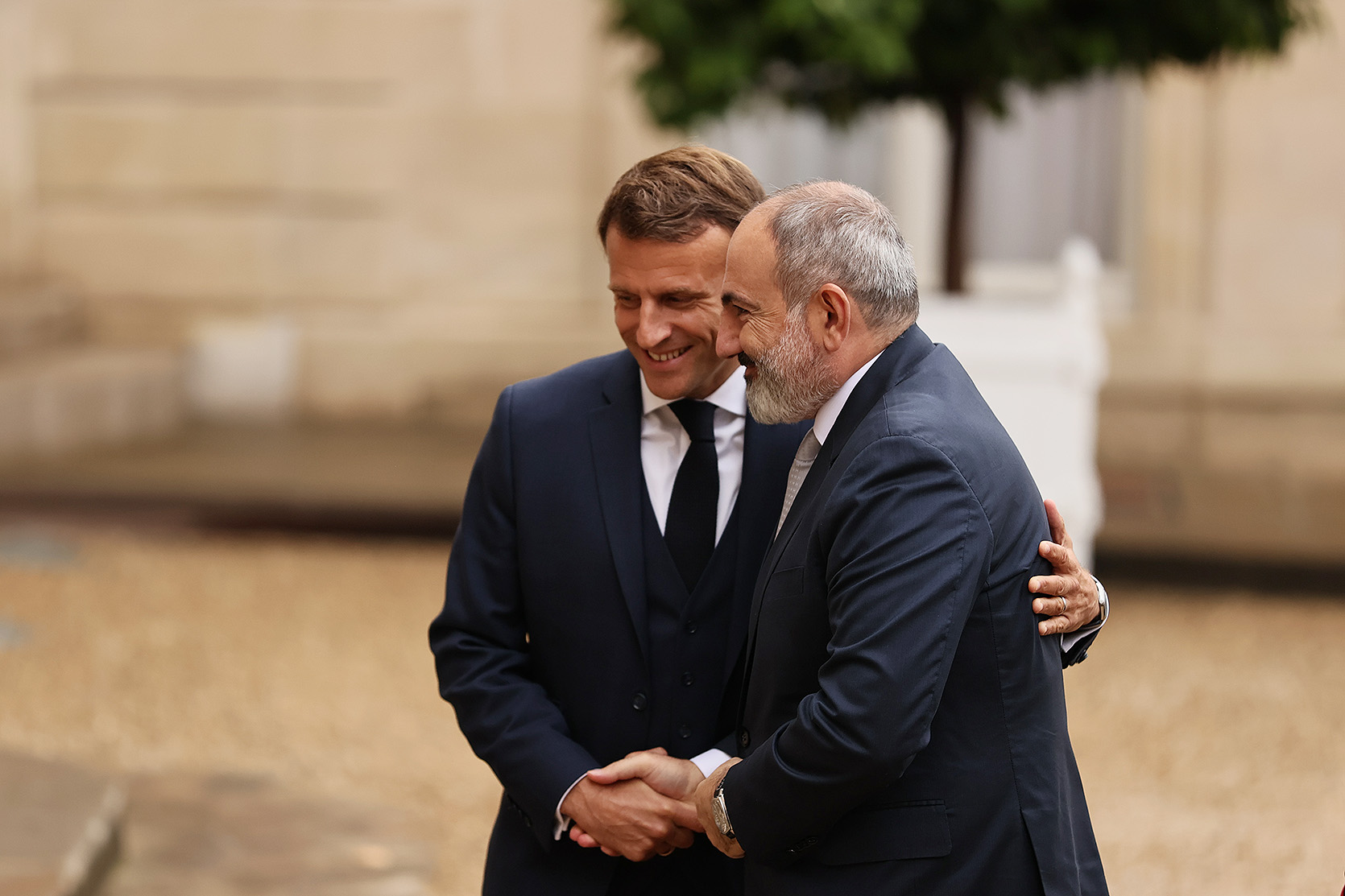“Better than nothing”: EU civil mission on the border of Armenia
EU mission on the Armenian-Azerbaijani border
Up to fifty observers will be part of the EU civilian mission to be stationed on the border between Armenia and Azerbaijan. The decision, made at a closed meeting of the Security and Defense Committee of the European Parliament, was reported by diplomatic sources to Radio Azatutyun (Freedom) last night. The Armenian Foreign Ministry has not yet published an official statement. So far there is only a statement by Foreign Minister Ararat Mirzoyan at a meeting with Sergei Lavrov in Astana on October 12: “I have just been informed that it seems that the EU already has already decided to send a fact-finding mission.”
According to a statement adopted in Prague following the Pashinyan–Aliyev-Makron-Michel meeting, the observers will begin in October for a period of no more than two months. It is not yet clear from which countries the observers will hail and who will have authority.
On October 6 in Prague, at the end of negotiations with the participation of the leaders of Armenia, Azerbaijan, France and the head of the European Council, a statement was signed according to which Armenia agreed to the deployment of a civilian EU mission along the border with Azerbaijan. Baku agreed to cooperate “to the extent that it will concern us.”
The objectives of the mission are:
- confidence building,
- contributing to the work of the border commissions through reports.
JAMnews asked Armenian experts what expectations Armenia should have from the EU mission given the experience of Georgia, where its observers were stationed after the Russian-Georgian war in 2008.
Hrant Mikaelyan, expert of the Caucasus Institute
“This is an important format, but it cannot solve Armenia’s problems”
According to political scientist Hrant Mikaelyan, if the mission did not show political will in Georgia, it is difficult to expect that it would be different in the case of Armenia.
“If our goal is to stop territorial changes [meaning the invasion of the Azerbaijani Armed Forces into the sovereign territory of Armenia], then we can hardly expect this from the EU mission. It will have more symbolic meaning than practical,” Mikaelyan said.
European diplomats say it is possible the observers may go to Armenia from Georgia. A civilian mission was stationed there after the August 2008 war to monitor the implementation of the Russian-Georgian agreements. And in this case, too, the goal was to restore trust between the conflicting parties. There are currently 200 mission observers in Georgia.
Mikaelyan recalls that demarcation has been carried out in the Georgian-Ossetian conflict zone for several years, which Tbilisi defines as illegal borderization, and civilian observers there are not interfering in the situation in any way:
“At that time, the Russians or Ossetians, who were standing on either side of the border, had a specific goal – to draw the actual border in accordance with their ideas. They achieved this goal, and the observers could only fix it. So I believe that political will and military presence are needed.”
According to Mikaelyan, in the case of Armenia the observers will also prepare a report, after which the European Union will decide on how to respond if there are new violations by Azerbaijan.
“This format can play an important role, but it cannot solve Armenia’s problems, it is just one element in the formula for solving security problems. Armenia needs much clearer tools to prevent further aggression from Azerbaijan,” Mikaelyan.
Armen Baghdasaryan, political scientist
“It’s a deterrent, but a very weak one”
According to political scientist Armen Baghdasaryan, since the Armenian-Azerbaijani border is now unstable and very vulnerable, the deployment of civilian observers can be helpful, but “Armenia should not have any specific expectations from observers.”
“The West will take into account not what is actually happening, but what political interests it is pursuing in our region at the moment. In this case, they can say that they don’t have actual data that Azerbaijan resorted to provocations, they still need to find out, etc. Observers come to Armenia not to protect it, but to promote the interests of the West, to increase their influence,” Baghdasaryan believes.
Baghdasaryan believes it is impossible to achieve the goals set for the EU civil mission in just two months. It is possible that this period will be extended in the near future:
“I would like to remind you that when the OSCE Minsk Group was created in 1992, it was assumed that its activities would last a maximum of several months; it was supposed to prepare the Minsk Conference. As a result, this organization has been functioning for about thirty years. I think it will be possible to extend the EU mission until the signing of a peace agreement, if this happens. I believe that the two-month deadline was set based on the logic that there is hope for some progress within two months.“
Armen Baghdasaryan considers the presence of the observer mission important and says “this is not a guarantee” but may have a “deterrent value”.
When asked if Baku would accept the reports prepared by the mission, if it agreed in advance that it would cooperate with a group of observers “to the extent that it concerns him,” he replied:
“Azerbaijan can say at any moment that these reports have no meaning for it, due to the fact that it does not participate in the process, the reports are one-sided, etc. Do not place high hopes on the observers. They can be a deterrent, but a very weak one. Still, it’s better than nothing.”
EU mission on the Armenian-Azerbaijani border




















